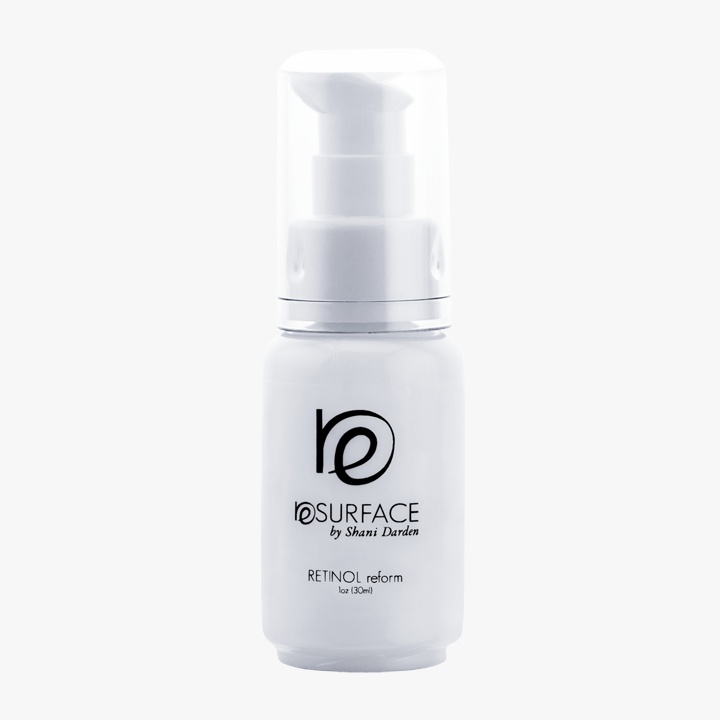Retinyl Propionate
Details
Retinyl Propionate (RP) is a less well-known, but pretty interesting member of the retinoids, aka the "royal family of skincare". You can read the who's who here but the TL;DR version is that tretinoin is the king himself (the FDA-proven anti-aging active molecule), retinol is like Prince George (two conversion steps needed to be active) and Retinyl Palmitate is like Prince Charlotte (George's little sister), 3 steps away from the throne.
Similar to Retinyl Palmitate, Retinyl Propionate is also a retinol ester with retinol and propionic acid being attached together. This puts our molecule in the place of little Princess Charlotte on the family tree, quite far away from the throne. However, not all retinol ester molecules are made equal when it comes to being transformed and being effective on the skin.
As Dr. Fulton (the scientist behind both Retin-A and RP) puts it in his patent paper, "Other esters of vitamin A obtained from, for example, palmitic acid and acetic acid do not have the therapeutic advantages found with vitamin A propionate ..... Presumably, the [Retinyl Palmitate] molecule is so large, it is not able to transdermally reach the necessary part of the skin for activity. Similarly, vitamin A acetate is too small molecularly and therefore easily recrystallizes from any solution.....vitamin A propionate is the appropriate molecular weight and configuration to both remain in a stable solution and to be transdermally delivered to a site where it is active." So while the effectiveness of other retinol esters is highly questionable, Retinyl Propionate seems to be the most effective retinol ester molecule, and it "unexpectedly provides all the benefits of vitamin A acid but minimizes the negative side effects", at least according to Dr. Fulton, the inventor of the molecule.
We know what you are thinking! This sounds great and all, but what about some proof? Some backup data not from the inventor himself? We looked into it and found three studies working with Retinyl Propionate.
In a 2007 study by Dr. Draelos, she references a 12-week, double-blind, placebo-controlled clinical trial that compared the effectiveness of 0.15% retinol with 0.3% Retinyl Propionate. Both actives were effective in reducing the appearance of facial wrinkles and hyperpigmentation and the 0.3% RP worked a bit better.
Another research that was done by Procter & Gamble combined multiple anti-aging actives including niacinamide, peptides and 0.3% of Retinyl Propionate and they compared this regimen with a 0.02% tretinoin regimen. They found that the cosmetic regimen was tolerated better, worked faster and gave comparable results. All this sounds very promising for RP, however, it is hard to know how much the other actives contributed to the positive results.
Last, but not least there is a study from 1998 that tested a 0.15% Retinyl Propionate cream and after 24 weeks found no statistically significant difference between the effects of the retinyl propionate cream and the placebo preparation for any of the clinical parameters of skin photoaging. However, after 48 weeks, the 0.15% RP worked wonders for actinic keratoses, a rough, scaly patch caused by UV damage (its name contains actinic, but it is not acne, has nothing to do with it (!)).
So, it seems that the minimum effective dose of Retinyl Propionate is larger than 0.15% which is not surprising given that it has to do three conversion steps to reach the active form, retinoic acid. But 0.3% RP (or more, obvs) seems to be an effective dose, and even though the proof is not as solid as it is for retinol itself, if you are looking for a more gentle alternative, or if you are in the mood for experimentation, Retinyl Propionate looks like a noteworthy alternative and the most promising option among retinol esters.
Show me some proof
- Green, C., et al. "A clinicopathological study of the effects of topical retinyl propionate cream in skin photoageing." Clinical and experimental dermatology 23 (1998): 162-167.
- Fu, J. J. J., et al. "A randomized, controlled comparative study of the wrinkle reduction benefits of a cosmetic niacinamide/peptide/retinyl propionate product regimen vs. a prescription 0· 02% tretinoin product regimen." British Journal of Dermatology 162.3 (2010): 647-654.
- Draelos, Zoe Diana. "The latest cosmeceutical approaches for anti‐aging." Journal of Cosmetic Dermatology 6.s1 (2007): 2-6.
- Fulton Jr, James E. "Composition and method for rejuvenating skin using vitamin A propionate." U.S. Patent No. 5,043,356. 27 Aug. 1991.






